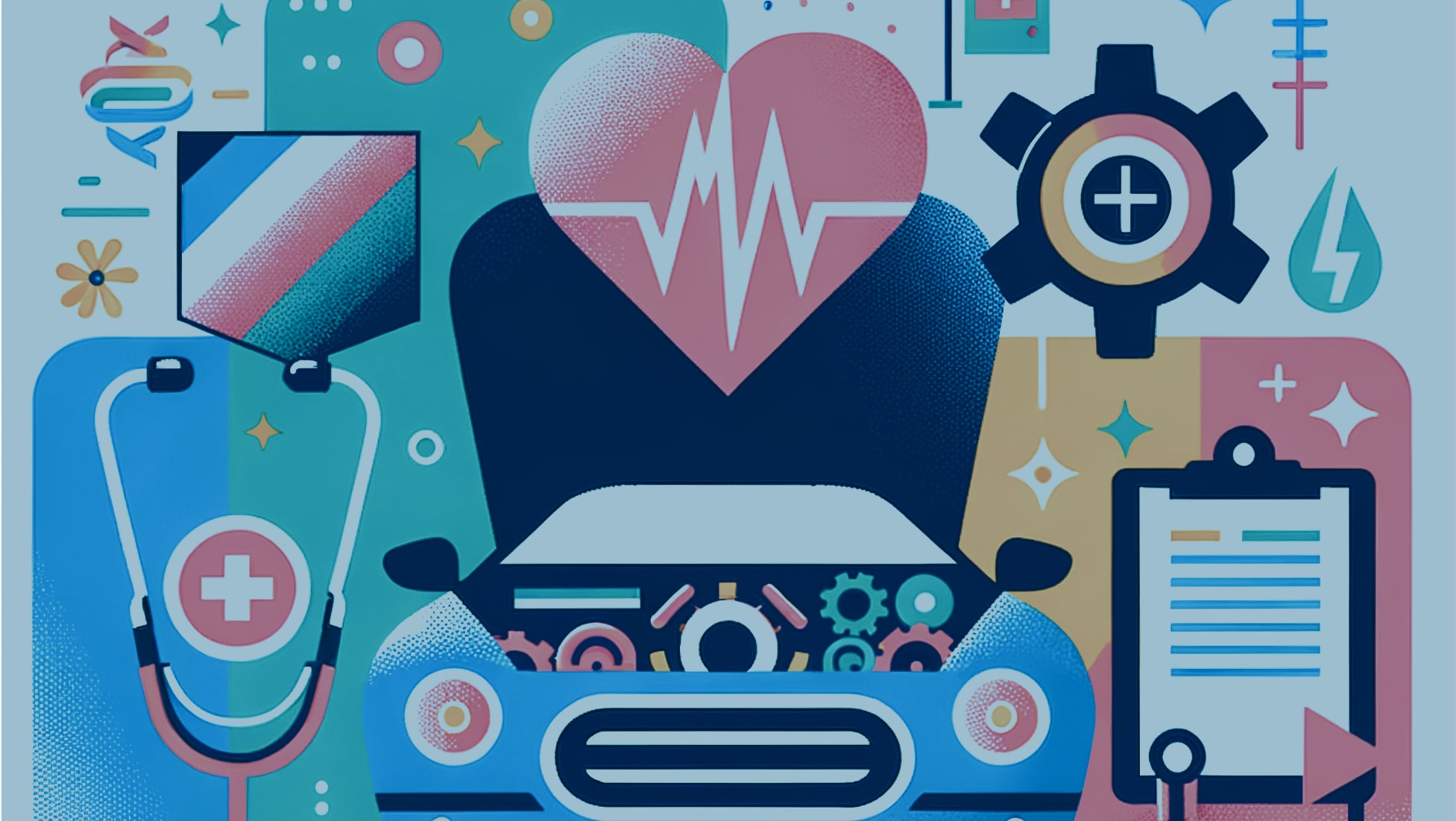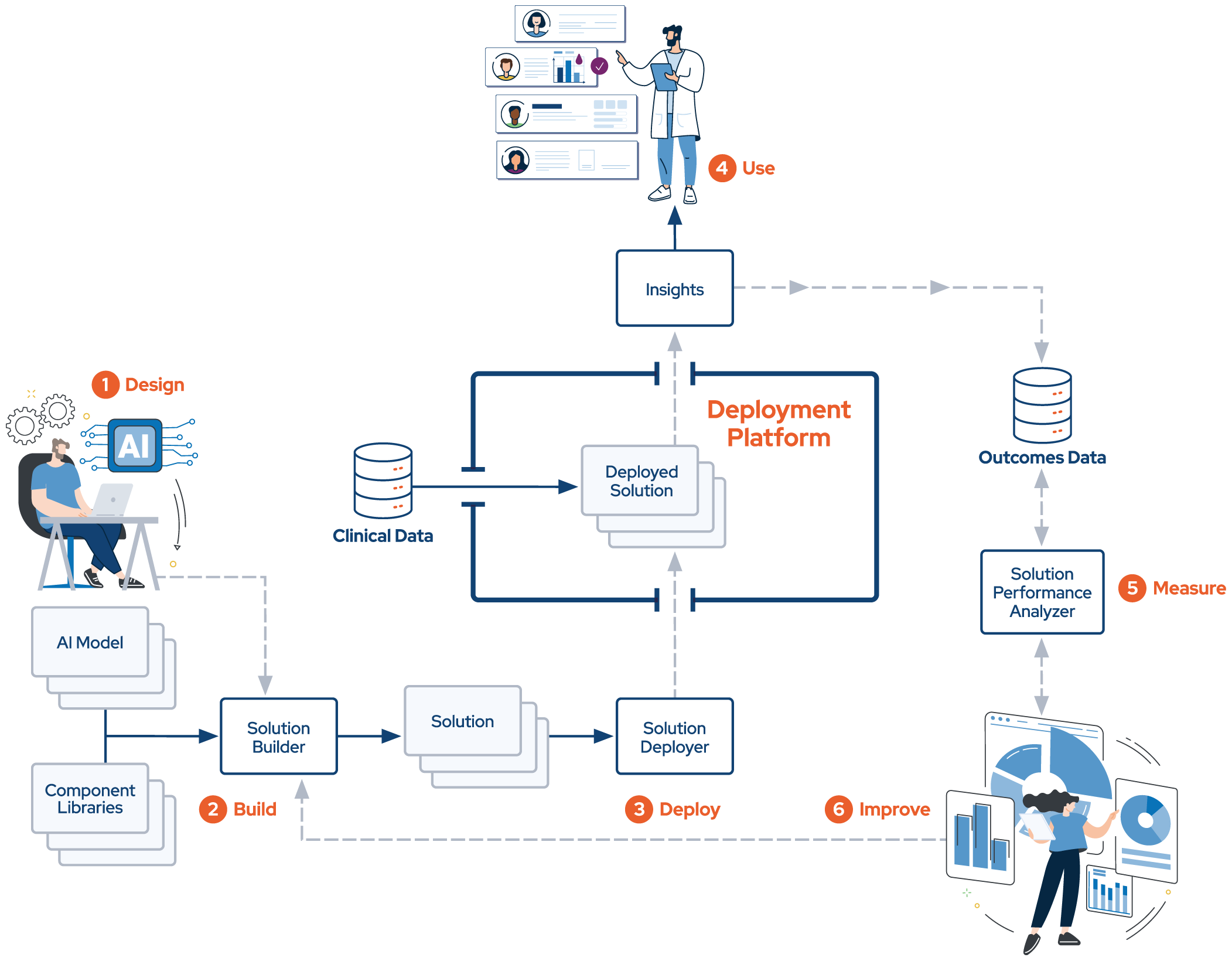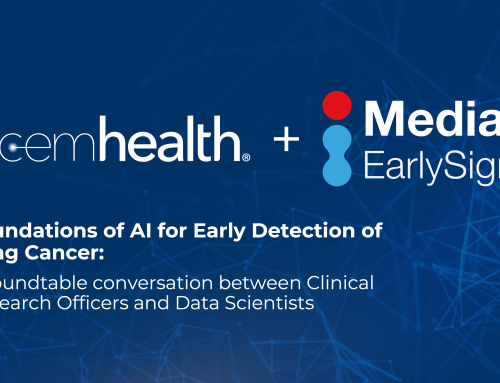
From Engines to Cars: Why We Invented Clinical AI SolutionOps
AI’s Potential in Healthcare
Artificial intelligence (AI) has enormous potential to help healthcare provider organizations and clinicians deliver better care. Clinical AI can help improve diagnosis, treatment, and outcomes. It can support more proactive engagement with patients and help increase the productivity of (and yield from) scarce care delivery resources. And none of this is theoretical: there are clinical AI solutions in the market today that are already delivering these kinds of benefits… for example, detecting stroke risk from undiagnosed atrial fibrillation and identifying the risk of lower GI disorders in patients overdue for screening colonoscopies.
But, despite the compelling potential of clinically focused AI-powered solutions, getting them deployed into the wild west of healthcare has been neither simple nor easy.
Until now.
Setting The Stage
If you’ve spent much time around AI, you’ve probably heard the term “MLOps.” MLOps is a set of processes, practices, and, increasingly, technologies that make it easier to build, deploy, and maintain machine learning (ML) models. Simply put, MLOps is like a software development lifecycle management process for AI/ML.
MLOps is a wonderful thing – some of our best friends use MLOps every day – but MLOps alone cannot deliver the power and potential of clinically focused AI to the real world of care delivery. Why? Because, MLOps helps you build models (engines) but it doesn’t help you build solutions (cars). To put it another way: it doesn’t matter how powerful and efficient an engine is if it can’t get down the road.
We like the succinct way our good friend John Halamka, MD, President of Mayo Clinic Platform, puts it: “algorithms are not solutions and math is not better care.”
So What’s A Solution Anyway?
(In other words, what’s in the car?) In our experience, well constructed, effective clinical AI solutions include the following:
- Data integration and curation: acquisition and optimization of the data (the fuel) used to power the solution’s AI model and provide relevant clinical context to solution users.
- Orchestration and interpretation: scalable, efficient AI model(s) execution (some of these cars have multiple engines!), as well as conversion of model outputs into something meaningful (kind of like how a transmission bridges the gap between the engine and the wheels).
- Workflow integration: delivery of interpreted model outputs and supporting data to end user stakeholders… right place, right time, right context (this is “human factors engineering” – making the solution ergonomically friendly, which is exactly what vehicle designers and engineers do).
- Performance measurement, analysis and improvement: collection of telemetry, downstream outcomes, and other performance related data to enable sponsoring stakeholders to understand real world solution value and impact and to enable solution and model developers to make improvements (this is a bit like the data a modern car gives you about gas mileage, average speed, service intervals, etc., and gives mechanics diagnostic information so they can make fixes and do maintenance).
- Deployment on a scalable, secure platform: underlying technology infrastructure that protects sensitive health information, optimizes solution and model performance, allows for extensibility, customization, and configurability, and makes all the other solution capabilities possible (it’s a lot like the role a chassis or vehicle platform plays in a modern car).
Enter Clinical AI SolutionOps
But how do you deliver all this and do it efficiently, and at scale? Enter… Clinical AI SolutionOps. Clinical AI SolutionOps, like MLOps, is set of processes, practices, and technologies that make it easier to build, deploy, manage, maintain, measure, and improve clinically focused AI powered solutions. Once again (and to put it simply), Clinical AI SolutionOps is like a software development lifecycle management process for clinical AI solutions.
Our team at Lucem Health is passionate about the potential of AI to help transform healthcare. We invented Clinical AI SolutionOps because we want to bring as many clinical AI solutions to the front lines of healthcare as possible and we can’t do that unless we can do it efficiently and at scale. We’ll share more of the details of how Clinical AI SolutionOps works in upcoming posts.
Meanwhile, we’re going to keep building cool cars!

